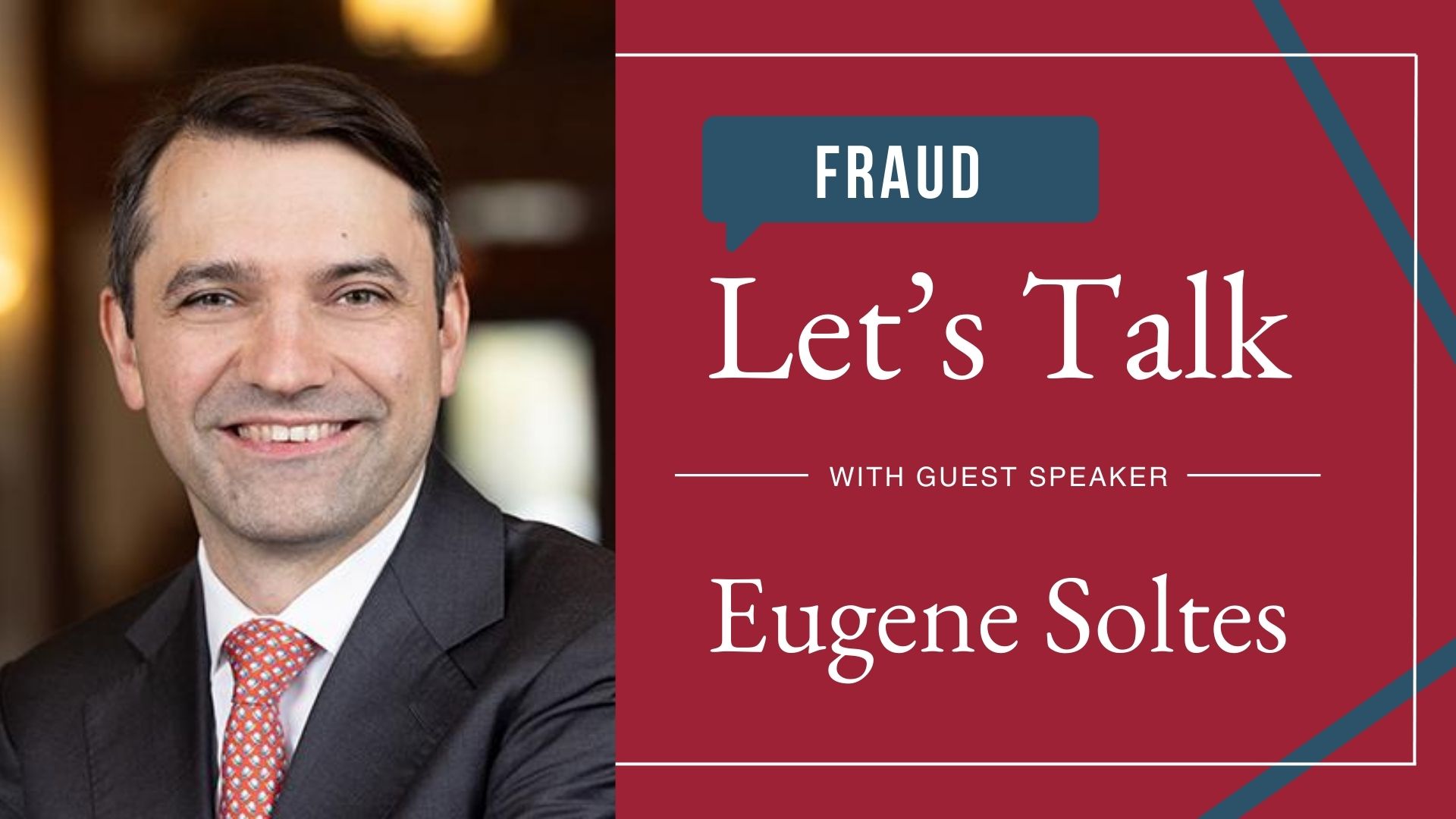

Eugene Soltes was a guest speaker for Let’s Talk about Fraud program. Soltes, a professor at Harvard Business School and author of our book of the semester, “Why They Do It: Inside the Mind of the White-Collar Criminal”, shared his research and observations to Walton College students, staff, faculty, and members of the community.
During the event, Soltes shared many takeaways and insights he learned when writing his book. He said that many commit white-collar crime because they see it as a “victimless” crime. But that is not the case. There are victims, but there is also “distance” between the perpetrator and the victim. This dissonance can make the crime seem less harmful. In fact, the perpetrators often think they are helping the company, at least in the short term. Yet when companies fall due to massive fraud, like Enron, MCI and many others, the market as a whole is a victim, including the shareholders and employees.
When asked why he believes people don’t own up to the act of committing fraud, Soltes responded with, “Many people don’t see it much as an ethics and moral problem, but more of a technical issue that has a simple solution.” This rationalization -- the idea that the fraud being committed is more of an accounting error or technical issue -- makes it all easier to digest for those who find themselves in these situations.
Soltes’ advice for students and those who may find themselves in a dubious situation is to “phone a friend.” Reach out to someone not involved in the situation. Find someone you trust to be honest with you, even if they give you advice that isn’t easy, or necessarily what you want to hear.
In writing the book, Soltes interviewed nearly 50 of the most high-profile former executives responsible for some of the most significant corporate crimes. He spoke with former executives from MCI, where other Let’s Talk about Fraud guest speaker, Walt Palvo, worked and participated in the accounting fraud, and even the infamous Bernie Madoff. Soltes’ research spanned seven years of interactions with these former executives, including visiting them and talking to them from prison.
To hear Bernie Madoff explain in his own words how he ended up orchestrating the largest Ponzi scheme in history, listen to the podcast or watch the video with Soltes and Cindy Moehring, founder and executive chair of the Business Integrity Leadership Initiative.
To learn more about MCI’s downfall and Pavlo’s role in it, listen or watch the video/podcast with Moehring and Pavlo.
In addition to Soltes’ research on white collar crime, his work at Harvard Business School also focuses on corporate integrity and utilizing data analytics to predict, detect, and mitigate issues related to organizational misconduct.
In connection with this work, Soltes wrote an interesting case study on AB InBev and the company’s forward-leaning application of technology and analytics in its corporate integrity program. To learn more about that, watch or listen to the related video podcast Moehring recorded with Matt Galvin, global vice president of Ethics and Compliance at Anheuser-Busch InBev.





